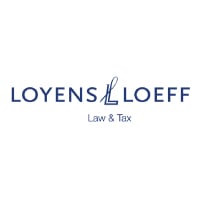

General Counsel, Senior Director | JTC Group




Oana-Jeanina Astilean
General Counsel, Senior Director | JTC Group
Team size: 13 members
What are the projects that you are most proud of working on over the past 12 months?
Over the past year, I have been involved in the negotiations of various M&A transactions and complex corporate restructurings in relation to our client portfolio, while navigating the evolving European regulatory landscape. In particular, I coordinated several strategic projects, which strengthened our data protection processes and assessments and enabled preparatory work for ensuring compliance with the Digital Operational Resilience Act (DORA) and the implementation of the Directive on corporate sustainability reporting (CSRD). Also on the regulatory side, a top priority has been monitoring EU sanctions compliance and deepening the knowledge within the progressing regime of the various packages of restrictive measures.
In addition, I have contributed to setting up new areas of business and services, such as our wider ESG and Sustainability practice and tailored solutions for SPACs. Another significant highlight was obtaining our escrow services license under the Second Payment Services Directive (PSD2), in the context of which I’ve been responsible for legally designing complex escrow mechanisms and structures.
Last but not least, I have deeply enjoyed co-chairing our group initiatives in the digital assets (Web3) space, which I am passionate about.
What do you think sets you apart from other in-house counsel?
Not sure to what extent it sets me apart from other counsel but being part of a leading global professional services business (publicly listed, FTSE 250) in the fund, corporate and private client sectors, and operating in a highly regulated and diverse industry, comes with many challenges. It requires a multidisciplinary approach and expertise to navigate the broad legal landscape, whilst addressing the business considerations effectively.
For me, staying closely connected with our clients and intermediaries – not just the business and stakeholders – is an essential best practice to anticipate and mitigate legal and regulatory risks and understand the evolving needs of our clients, and ultimately of our business. I believe it is key to adapt business strategies accordingly, without compromising core values and long-term objectives. Managing such client-facing exposure further enables me to test first-hand the effectiveness and quality of our processes.
I am an avid learner and focused on continuously gaining expertise in emerging areas of law or business. Staying ahead of industry developments allows me to manage legal aspects pro-actively and contribute to the business’ growth by sharing a forward-thinking vision.
What do you think are the most important attributes for a modern in-house counsel to possess?
I think a modern in-house counsel must be equipped with broad legal expertise and should have the ability to successfully anticipate and integrate the relevant legal and regulatory developments within the business. On top of that, I believe it is fundamental to also possess financial and commercial literacy, along with technological proficiency, in order to bridge the gap between legal and other business functions and ensure efficient interaction across all departments.
Collaborative leadership and transparency, reliability and versatility are also key attributes to navigate any rapidly evolving and dynamic landscape.
Based on your experiences in the past year, are there any trends in the legal or business world that you are keeping an eye on, of which you think other in-house counsels should be mindful?
There are numerous trends to keep an eye on, but one that definitely stands out is the rapid and widespread adoption of digital technology. For many businesses, it has become a necessity to implement sophisticated AI-powered solutions and tools to enhance both legal and operational efficiency to maintain competitiveness in the market.
For instance, many companies have been training and using their own large language models (LLMs), which introduce complexities, such as inaccurate or misleading information (known as hallucinations), potential copyright issues or conflicts between various copyright regulations when used globally.
Any in-house counsel should be particularly cautious when integrating such AI-driven tools into their workflow, by ensuring rigorous validation and oversight to mitigate risks associated with potential unreliable or inadequate outputs that could result in legal liability, regulatory breaches or reputational damage.